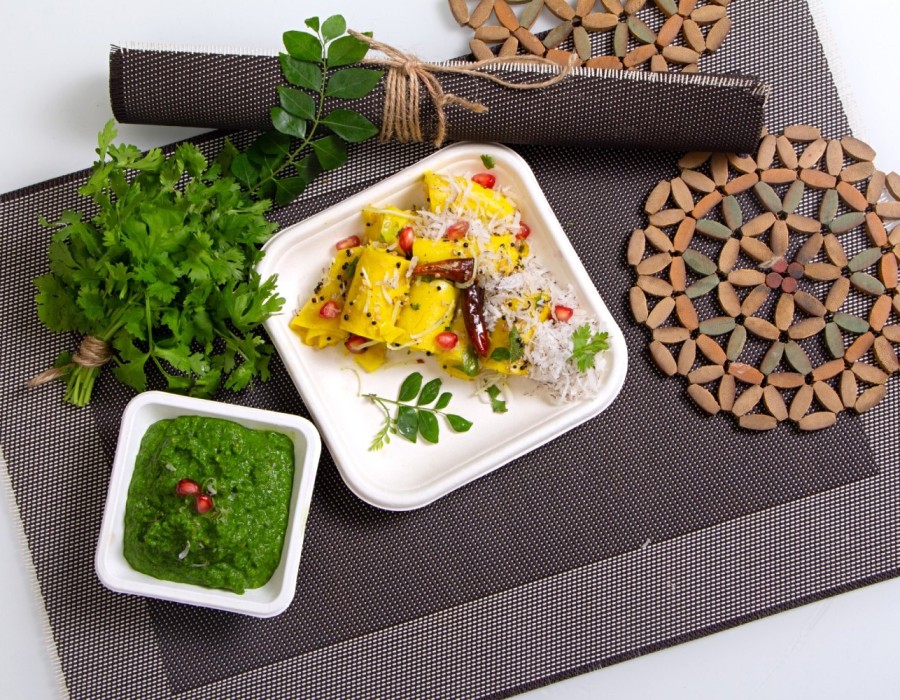In a world grappling with environmental degradation and plastic pollution, the search for sustainable alternatives to disposable tableware has become imperative. Traditional paper and plastic plates and bowls have long been staples at parties, picnics, and in the food service industry, but their environmental impact is substantial. Enter sugarcane bagasse—a revolutionary material poised to transform the landscape of disposable tableware. Let’s explore why sugarcane bagasse is the future of eco-friendly plates and bowls, offering a sustainable solution that outshines its paper and plastic counterparts.
The Problem with Traditional Disposable Tableware
Plastic Plates and Bowls:
- Non-Biodegradable: Plastic products can take hundreds of years to decompose, leading to long-term environmental pollution.
- Toxic Chemicals: The production and disposal of plastics release harmful chemicals that contaminate air, water, and soil.
- Microplastics: Over time, plastic breaks down into microplastics, which enter the food chain and pose health risks to humans and wildlife.
Paper Plates and Bowls:
- Deforestation: The production of paper plates often involves deforestation, contributing to habitat loss and carbon emissions.
- Chemical Processing: Paper products require significant chemical processing, including bleaching, which can release toxins into the environment.
- Water Usage: Manufacturing paper products consumes large quantities of water, straining this precious resource.
The Rise of Sugarcane Bagasse Tableware
Sugarcane bagasse, the fibrous residue left after extracting juice from sugarcane, presents a compelling alternative. This agricultural byproduct is typically discarded or burned, but innovative companies like Ecolates are transforming it into eco-friendly plates and bowls. Here’s why sugarcane bagasse is set to revolutionize disposable tableware.
Eco-Friendly Advantages of Sugarcane Bagasse Tableware
1. Biodegradability and Compostability: Sugarcane bagasse plates and bowls are fully biodegradable and compostable. Unlike plastic, which lingers in the environment, bagasse products break down naturally within months, enriching the soil and reducing landfill waste.
2. Renewable Resource: Sugarcane is a fast-growing crop, and bagasse is a byproduct of the sugar industry. Utilizing bagasse for tableware reduces waste and makes use of a renewable resource, unlike paper products that often rely on deforestation.
3. Lower Carbon Footprint: The production process for bagasse tableware has a lower carbon footprint compared to plastic and paper. It uses less energy and water, and emits fewer greenhouse gases, making it a more sustainable choice overall.
4. Sturdy and Functional: Sugarcane bagasse tableware is not only eco-friendly but also practical. These plates and bowls are sturdy, heat-resistant, and can hold both hot and cold foods without compromising their integrity.
Comparison: Sugarcane Bagasse vs. Plastic and Paper
Environmental Impact:
- Plastic: Long-lasting pollution, microplastics, high carbon emissions.
- Paper: Deforestation, chemical pollution, high water usage.
- Bagasse: Biodegradable, compostable, utilizes agricultural waste.
Production Process:
- Plastic: Fossil fuel-based, toxic byproducts, non-renewable.
- Paper: Resource-intensive, chemical-heavy.
- Bagasse: Energy-efficient, low water usage, minimal chemicals.
End of Life:
- Plastic: Centuries to decompose, landfill buildup.
- Paper: Decomposes faster but with chemical residues.
- Bagasse: Decomposes in months, enriches soil, zero toxic residue.
Ecolates: Leading the Charge in Sustainable Tableware
Ecolates, a pioneer in sugarcane bagasse products in India, is at the forefront of this eco-friendly revolution. We offer a wide range of high-quality, sustainable plates and bowls designed to meet the needs of consumers and businesses committed to reducing their environmental footprint.
Why Choose Ecolates?
- Quality: Our bagasse tableware is durable, heat-resistant, and aesthetically pleasing.
- Sustainability: Every product is biodegradable and compostable, aligning with global sustainability goals.
- Innovation: We continually innovate to provide the best eco-friendly solutions, ensuring that our products not only meet but exceed industry standards.
Conclusion: Embracing a Sustainable Future
As the world shifts towards sustainability, the adoption of eco-friendly plates and bowls made from sugarcane bagasse is a critical step. This innovative material offers a viable, sustainable alternative to traditional disposable tableware, helping to reduce environmental impact and promote a greener future. By choosing sugarcane bagasse products from Ecolates, you are not only making a responsible choice for yourself but also contributing to the well-being of our planet. Join us in embracing the future of disposable tableware and making a positive difference, one plate at a time.





Comments